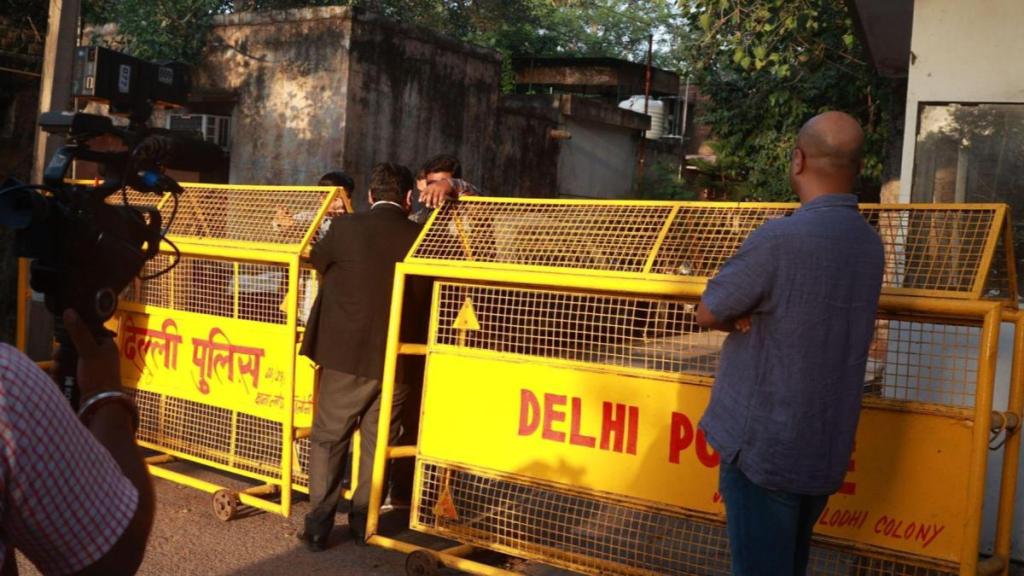As the capital remains under the grip of “very poor” air quality, and with temperatures dropping, Delhi Police has drawn up a comprehensive plan to safeguard its traffic personnel from adverse effects of pollution and cold, officials said on Thursday. This includes providing high-quality air-filter masks, winter gear and regular health check-ups to ensure their safety, a senior officer of the Delhi Traffic Police said.
He said, like every year, as smog blankets Delhi and air quality dips, traffic police personnel are among the most exposed groups, spending long hours outdoors.”We have decided to further strengthen protective measures for them. We have around 6,000 personnel, and each of them is provided with masks, winter wear, and other essential gear to help them perform their duties,” the officer said.
He said this year, they are distributing nearly 50,000 high-quality masks among their staff.”Last year, we had provided N-95 masks, but this time we decided to upgrade to more effective and higher-quality masks that offer better protection from pollution and dust. These masks are more expensive but also more durable and comfortable for officers who spend long hours on the road,” the officer said.
Another official said the new initiative was part of a wider safety plan formulated by the Delhi Police to counter air pollution and falling temperatures during winter. Delhi’s Air Quality Index (AQI) has frequently crossed the 350 mark in recent days, entering the “very poor” category, while visibility has dropped in several parts of the city due to smog.”Traffic personnel are on duty at major intersections and congested corridors for eight to ten hours daily, often without shelter.
Given these conditions, it becomes imperative to protect their health and make sure they are well-equipped to perform their duties efficiently,” the officer said. He further said the Delhi Traffic Police has also been conducting frequent health camps at its headquarters in Todapur to monitor the physical and mental well-being of personnel, ensuring timely medical intervention when required.
“We regularly conduct health camps at the traffic police Headquarters in Todapur, two to three times every month throughout the year,” the officer added.At these camps, specialists examine officers for various health issues arising from long exposure to pollution and stressful working conditions.”Specialists from various fields, including eye doctors and general physicians, examine our officers… We also invite psychologists to talk about mental health and help our officers manage stress better,” he said.
The Delhi Traffic Police said it recognises the demanding nature of traffic duty, which exposes personnel not only to pollution but also to erratic weather, noise, and continuous stress from managing high traffic volumes.The officer said additional measures such as providing hydration support, reflective jackets for night duty, and rotational deployment during extreme weather are also being implemented as part of the broader welfare strategy.


